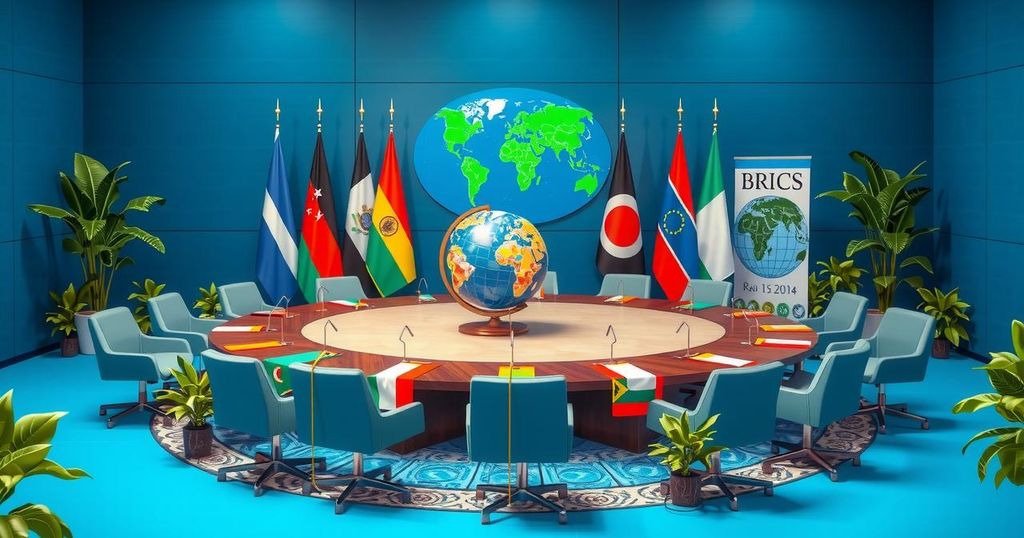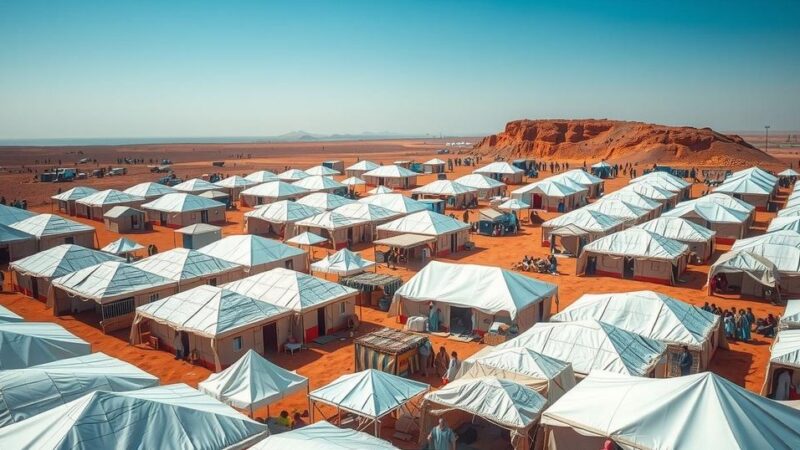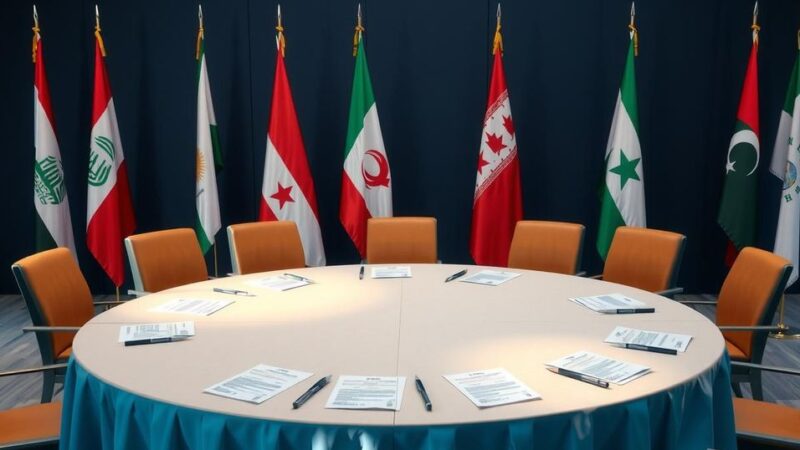BRICS foreign ministers met in Rio de Janeiro to discuss strategies against Trump’s trade policies amid a declining global economic outlook. Brazilian Foreign Minister Mauro Vieira emphasized the need for dialogue over global crises. The ministers addressed conflicts, including the Gaza and Ukraine situations, while also considering the potential for reducing reliance on the dollar in trade. Climate change discussions were also anticipated as Brazil prepares for the COP30 conference.
The BRICS foreign ministers convened in Rio de Janeiro on Monday for a two-day meeting, amid rising tensions caused by U.S. President Donald Trump’s trade policies. This gathering, involving diplomats from Brazil, China, Russia, and other BRICS nations, comes just as the International Monetary Fund has reduced global growth forecasts, primarily due to Trump’s recent tariffs. The discussions aim to create a united front against what many view as aggressive trade practices from Washington.
As the world’s economic conditions deteriorate, Brazilian Foreign Minister Mauro Vieira emphasized the necessity of open dialogue, especially in light of ongoing humanitarian crises and political instability. He remarked on the growing importance of BRICS as a coalition during these challenging times, stating that its role is more vital than ever. Simultaneously, Trump continues to impose tariffs, with recent reports indicating that China faces tariffs as high as 145% on certain imports. In retaliation, Beijing has instituted duties of 125% on U.S. goods.
Chinese officials, including senior economic planner Zhao Chenxin, defended their country’s position, asserting that they stand on the “right side of history” against what they describe as Washington’s bullying tactics. From its establishment in 2009 as a group of four nations aiming to provide an alternative to Western-dominated organizations like the G7, BRICS has expanded its membership significantly, now representing nearly half of the global population and 39% of the world’s GDP.
During the initial discussions, Vieira also called for an immediate withdrawal of Israeli military forces from Gaza, criticizing Israel’s lengthy blockade of humanitarian aid as “unacceptable.” On the subject of the ongoing conflict in Ukraine, BRICS members have focused on advocating for peace while maintaining a neutral stance on condemning Russia. Vieira urged for a diplomatic solution aligned with United Nations principles, recognizing the critical need for dialogue in current geopolitical conflicts.
This meeting unfolds during what the U.S. has labeled a decisive week for Ukraine discussions, especially following a notable dialogue between Trump and Ukrainian President Zelensky recently. In response to rising tensions, Russian President Vladimir Putin announced a short ceasefire from May 8 to 10, though the White House has indicated that this is insufficient for long-term resolution. Concurrently, discussions within BRICS are also expected to address challenges to U.S. dollar dominance, as member nations seek to increase the use of national currencies in transactions. Lavrov, the Russian Foreign Minister, highlighted this agenda while clarifying that talks of a unified BRICS currency were still in their infancy.
Finally, matters pertaining to climate change are also set to be influential in upcoming discussions, since Brazil will also host the UN COP30 climate conference later this year in Belem, further underscoring the diverse challenges the BRICS countries are navigating together.
In conclusion, the BRICS foreign ministers’ meeting in Brazil highlights significant geopolitical and economic challenges faced globally, particularly in light of U.S. trade policies. As the ministers work towards a united approach, issues such as territorial conflicts, climate change, and trade currency alternatives are paramount. The group’s response to current turmoil, marked by calls for peace and economic cooperation, reflects its evolving identity and purpose in a multi-polar world.
Original Source: www.hindustantimes.com






